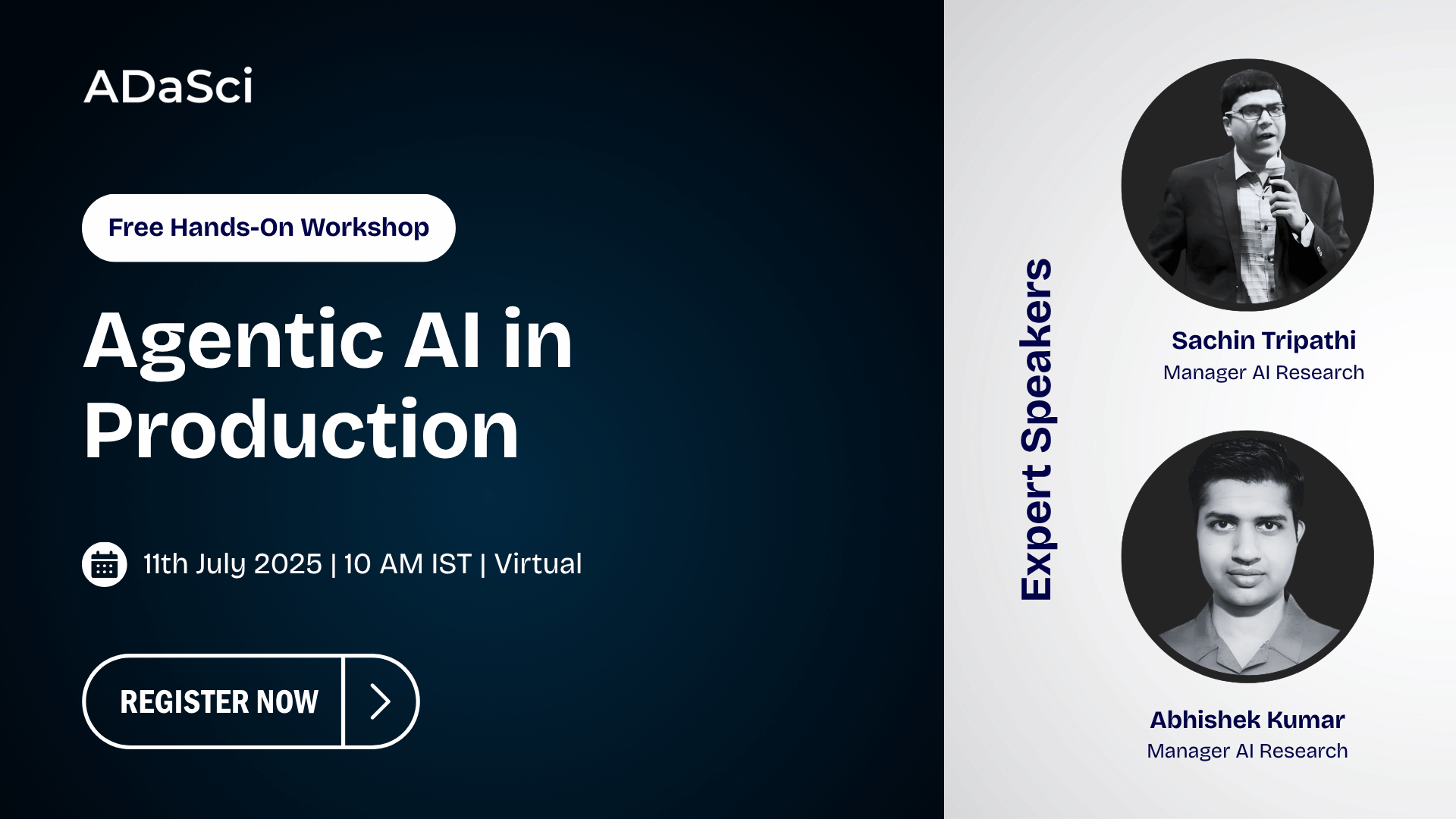From Voxel to Vision: Unleashing the Potential of Brain Mapping in Healthcare

Explore more from ADaSci
As the sun began to set over Bengaluru, the audience at the Machine Learning Developers Summit (MLDS) 2024 eagerly gathered for one of the final sessions, featuring the renowned Dr. Rimjhim Agrawal, Co-founder and CTO of BrainSightAI. With a spirited introduction, Dr. Agrawal embarked on a journey through the intersection of machine learning and neurosciences, unraveling the mysteries of the human brain and its applications in healthcare.
Why Healthcare and AI? Unraveling the Dilemma
In her engaging talk, Dr. Agrawal addressed the fundamental question – why the amalgamation of healthcare and artificial intelligence (AI)? She eloquently outlined three key aspects – the challenges faced in healthcare, the methodology adopted by BrainSightAI, and the specific problems addressed in neurotech. Dr. Agrawal brought to light the persistent issue of delayed diagnostics in healthcare, emphasizing the domino effect it triggers – from incorrect diagnoses to ineffective treatments and adverse side effects. This, she explained, stems from the sheer complexity of the brain and the lack of comprehensive information available to medical practitioners.
Constructing Brain Maps: From Voxel to Vision
The core of BrainSightAI’s approach lies in constructing detailed maps of the brain, transcending mere structural definitions. Dr. Agrawal illuminated the audience intricacies of these Brain Maps, which not only depict the physical structure but also identify active regions responsible for various functions. These functions include vision analysis, motor skills, and sensory-motor coordination – critical elements that, when mapped, significantly enhance the precision of surgeries and treatments.
Guiding Neurosurgeons, Neurologists, and Psychiatrists
Dr. Agrawal delved into three major use cases, shedding light on the practical applications of BrainSightAI’s technology. First and foremost, she addressed the needs of neurosurgeons, emphasizing the importance of guiding them in identifying entry points for surgeries, recognizing crucial brain regions, and avoiding interference with vital areas. The presentation showcased intricate brain tracks derived from diffusion tensor imaging, providing a roadmap for neurosurgeons.
Moving forward, Dr. Agrawal discussed how neurologists leverage these Brain Maps for cognitive mapping, especially in cases of disorders like dementia. The maps serve as valuable tools in pinpointing affected brain regions, aiding in targeted therapies for memory loss and related challenges. Lastly, BrainSightAI collaborates with psychiatrists to generate reports for psychiatric evaluations, offering insights into brain areas affecting memory retention and speech.
The Data Challenge: Turning Black and White into Technicolor
An intriguing aspect of Dr. Agrawal’s talk was the discussion on the types of data used. Drawing parallels to Google Maps, she explained the necessity of understanding the destination (structural MRI), the roadmaps (diffusion tensor imaging or DMRI), and the traffic maps (functional MRI). However, she humorously pointed out that the actual data received resembles “black and white old movie kinds of pictures.” This data, processed through 26 intricate steps, involves various techniques from segmentation to tumor detection, transforming it into valuable information for medical professionals.
AI is a Necessity, not an Addition
In a candid admission, Dr. Agrawal emphasized that AI is not an optional addition but necessary when dealing with high-dimensional datasets, especially in functional MRI, where human interpretation is virtually impossible. BrainSightAI’s approach involves AI in processing, extracting, classifying, and engineering information to present tangible insights to medical professionals.
Journey So Far: Validations, Approvals, and Real-world Impact
As Dr. Agrawal shared BrainSightAI’s journey, she proudly announced their presence in around 30 hospitals, with approvals validating their commitment to delivering impactful solutions. The technology has already played a role in over 370 surgeries, showcasing the real-world application of ML-powered Neurotech in healthcare. However, she acknowledged the ongoing need for extensive validations, given the experimental nature of ML in healthcare.
Looking Ahead
Dr. Agrawal concluded her talk by outlining the potential future directions for ML in healthcare. She highlighted the scope for generative AI models, opening doors for drug development, survival analysis, and rehabilitation plans. The prospect of ML-driven advancements in drug validation, epileptic network predictions, and transformative treatments sparked excitement, suggesting that the revolution witnessed in finances might soon be mirrored in healthcare.
In closing, Dr. Rimjhim Agrawal expressed hope for a healthcare revolution, where startups and companies push the boundaries, validating the underlying science, understanding the algorithms, and running the extra mile to revolutionize healthcare. As the audience absorbed the insights, the applause resonated with anticipation for the transformative era that ML-powered Neurotech promises in the realm of healthcare.






